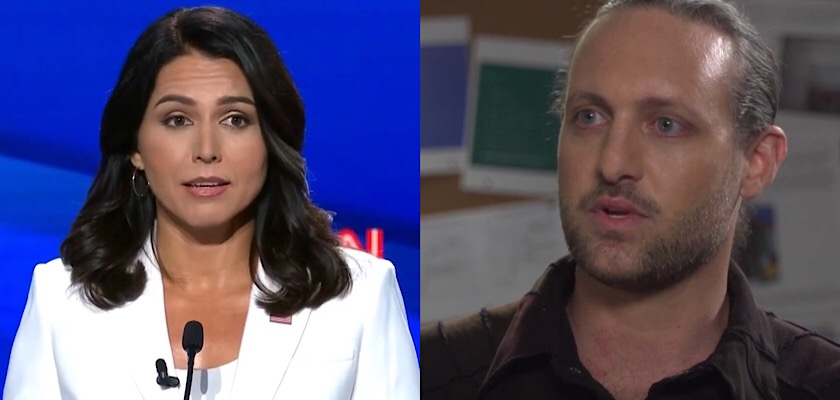Former Google employee Zach Vorhies, who recently leaked a trove of Google documents showing the company’s biases, has reached out to the attorney representing 2020 presidential candidate Tulsi Gabbard in her Google lawsuit and suggested that malicious actors may be to blame for the suspension of her search ads account.
Gabbard is suing Google for suspending her search ads account a few hours after the first Democratic presidential debate. Her complaint says that the account was suspended for several hours without explanation.
In an open letter to Gabbard’s attorney, Vorhies suggests that the suspension of her account could have been triggered by a “technical vulnerability that, when exploited, would take any gmail account down.” Vorhies goes on to say that “certain unknown 3rd party actors are aware of this secret vulnerability and exploit it.” He claims that “malicious actors” used this vulnerability while he was employed at Google to temporarily disable the Gmail account of clinical psychologist Jordan B. Peterson in 2017.
Gmail accounts are used to access most of Google’s products and services, including search ads, so if this exploit was used to take down Gabbard’s Gmail account after the debates, it would have prevented her from accessing the search ads account temporarily.
According to Vorhies, the vulnerability works by:
- Taking a target’s Gmail address
- Changing one letter in that Gmail address
- Creating a new Gmail account with that changed email address
- Repeating this process to create a network of “spoof accounts”
- Generating spam emails from the network of “spoof accounts”
Vorhies writes that these “email-spam blasts” trigger an artificial intelligence (AI) system which then deactivates both the “spoof account” and the original Gmail account. He says the deactivation of the original Gmail account is a bug which has never been fixed and when Google cites “suspicious” activity, this bug is often the underlying cause.
When Gabbard’s search ads account was suspended, Google mentioned “automated systems that flag unusual activity” and said “our system triggered a suspension” which matches many of the criteria described by Vorhies.
If this exploit was used to lock Gabbard out of her search ads account in the wake of the first Democratic presidential debate, it suggests that Google didn’t intentionally suspend her account and instead malicious third-party actors targeted Gabbard.
Regardless, Vorhies still sees the existence of this vulnerability as “a significant threat to our democratic process” and is writing the open letter to assist Gabbard’s attorney in the legal discovery process.













